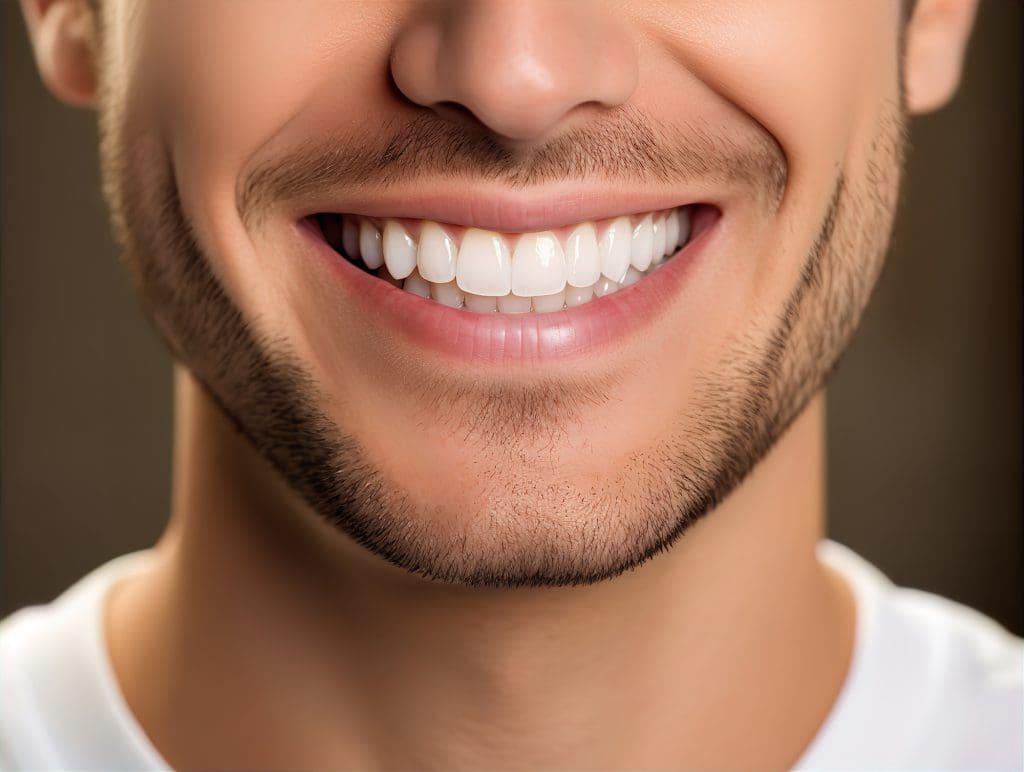Full Disclosure: Clicking on these links could mean a tiny commission for me, at no extra cost to you.
One of the most common mental health disorders is social anxiety. It impacts 12.1% of adults in the US at some point in their lives. But what exactly is social anxiety? Is it about people who don’t enjoy large gatherings? Does it describe those who are more introverted in nature? The truth is it can be more than that. For some, it could be another issue that’s causing their aversion when surrounded by other people. And that problem could be poor oral health. Of course, dental hygiene is important. It reduces the risk of developing oral diseases like tooth decay. It impacts your overall health, too. Mouth infections can creep into other areas of the body. But there’s one thing many people may not realize – the link between social anxiety and dental hygiene. Yes, poor oral health may lead to social anxiety and vice versa. Learn more about this interconnected cycle below.
The Impact of Poor Oral Health on Social Anxiety
As mentioned earlier, poor dental hygiene may lead to social anxiety. Here’s how:
- Fear of bad breath
People don’t usually share about it. But breath-related anxiety is real – an issue causing a great deal of concern. A systematic review published by the National Library of Medicine in 2023 mentioned that 56.9% of individuals suffering from halitosis are reluctant to talk to people.
Whether genuine or imaginary, fear of bad breath has effects on behavior. These are defensive behaviors, to be exact. And they include limiting oral communication and keeping greater personal distance when talking to someone.
- Smile anxiety
Then there are the discolored, missing, or crooked teeth – the visible signs of poor dental hygiene. They make it difficult for someone to smile in public. And it’s mainly because of insecurities about how others would think about their teeth. These self-esteem issues would ultimately lead to isolation from social interactions.
It’s no dead end for people who’ve developed social anxiety due to poor oral health, though. There’s a light at the end of the tunnel. Reliable and trusted Groton dental professionals or those who are serving your area can help you achieve a healthy mouth. All it takes is just the right dental procedure and a little expert guidance so you can stay on top of your oral health.
Social anxiety’s effects on dental health
Now, what happens when you fail to address the dental problems affecting your self-esteem? It creates a vicious cycle wherein poor oral health fuels social anxiety. And in turn, social anxiety discourages proper dental care. Take a closer look at social anxiety’s impact on dental health below.
- It prevents early intervention
One way social anxiety may affect dental health is by preventing early treatment.
Fear of judgment may deter someone from visiting a dentist. They don’t get routine check-ups as a result. Over time, what supposedly were just minor issues become major problems due to lack of intervention.
When a simple calculus buildup escalates, turning into a cavity, gum disease, or other infections, it becomes more complicated to manage. It may then exacerbate anxiety.
- It makes sticking to a dental hygiene routine difficult
The neglect that prevents early intervention may extend to someone’s daily routine. How? People with social anxiety may have feelings of unworthiness that could result in apathy. Their motivation for self-care decreases close to zero. When that happens, even regular brushing and flossing become challenging. Of course, the risk of plaque buildup and infections skyrockets after that.
- Behaviors that could further damage oral health
Individuals who are suffering from social anxiety may develop coping behaviors, too. They may drink alcohol or smoke more frequently. Some may even resort to illegal substances. And what do these habits do to your teeth and gums? They create the perfect environment where harmful bacteria can grow and thrive.
It doesn’t stop with coping behaviors. Ever heard of self-soothing activities among people with anxiety? The most common is nocturnal bruxism or tooth grinding during sleep. Did you know that it affects more than one in 10 individuals during their sleep, as per Forbes? And one of the main risk factors is, you guessed it right, anxiety. This condition may lead to dental complications like cracked teeth if left unaddressed.
Understanding and supportive healthcare providers like psychologists and dentists are paramount. Their presence would go a long way in helping people with anxiety disorders develop healthier oral hygiene.
How to manage social anxiety and dental hygiene
Is there something you can do to break such a vicious cycle? Yes! Here are a few strategies:
- Find a supportive dental environment
The first step is to find a dental clinic you can be comfortable with. Of course, it wouldn’t be an easy task to accomplish. But what you can do is prioritize a welcoming and calming environment. The clinic you choose should make you feel at ease the moment you step through its doors.
Remember that it’s not only about how highly skilled their dental team is. Check how friendly and compassionate they are, too. Do they give a warm smile? Do they also give reassuring words? Do they take the time to listen to what you have to say?
Speaking of a dental team that listens, be sure to talk to your prospective dentist first. Do it before scheduling any dental session. And tell them about your fears during this consultation. That way, you can work together and create a plan that addresses your concerns.
Finally, ensure that the clinic or provider you choose prioritizes a stress-free experience through advanced dental technology and pain management techniques. These allow for precise and efficient treatments. They minimize discomfort and can even reduce appointment times!
- Seek professional help for anxiety
Keep in mind that in this vicious cycle, it isn’t only dental hygiene that you have to deal with. Addressing your social anxiety symptoms is also of equal importance. That said, don’t hesitate to seek professional help for your mental health.
Many types of therapy can treat social anxiety effectively. A good example is cognitive behavioral therapy (CBT). They often focus on helping a person address negative thoughts or beliefs.
With expert help for both the dental and mental aspects of your health, the chance of achieving both good oral health and improved confidence is high!
Takeaway
Poor dental hygiene has a lot to answer for. It’s not only your oral health that suffers. It affects your mental health, too. The problem is that when you’re too anxious about the people around you because of oral health problems, there’s an increased chance of you neglecting your dental hygiene further. A vicious cycle, indeed.
Should you allow yourself to be trapped in that cycle? Of course not. Break free by seeking professional help for both your dental and mental health. It’s time to take charge of your well-being!










